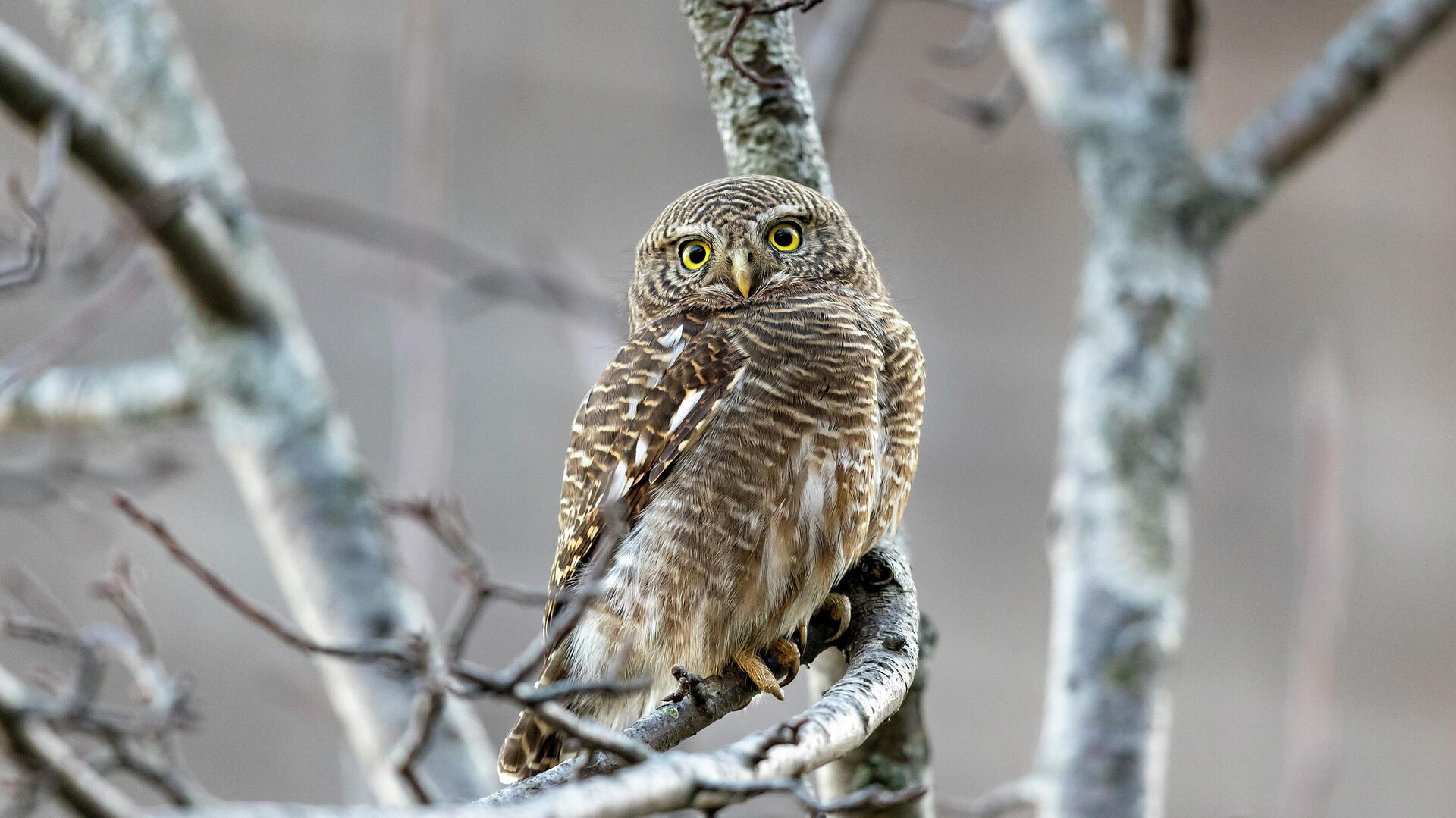Owl Sacrifice: Officials in North India on Alert Over Occult Threat in Approach to Diwali
13:47 GMT 02.11.2021 (Updated: 10:40 GMT 19.07.2022)

© AP Photo / Ashwini Bhatia
Subscribe
According to Hindu belief, an owl is the vehicle of the Indian Goddess Lakshmi, the goddess of wealth. Many people in north India believe that sacrificing owls can ward off bad luck, and endue the perpetrator with prosperity.
Days ahead of one of India's biggest celebrations, the Hindu festival of lights - otherwise known as Diwali - forest officials and wildlife activists in many parts of northern India are in a state of high alert and have increased their vigil to combat owl poaching.
Every year around Diwali, the nocturnal birds (owls) are trapped and hunted in large numbers as sorcerers, and practitioners of black magic use them during occult sacrifice.
According to Hindu belief, the shy bird brings prosperity and good fortune.
Wildlife teams have arranged all kinds of preventive measures in such states as Uttarakhand, Himachal Pradesh, Bihar, Madhya Pradesh, Rajasthan, Chhattisgarh, and Uttar Pradesh - especially in the tribal areas.
Every year, a large number of #owls 🦉are sacrificed for mystic rituals & practices across India, which usually peaks around the festival of #Diwali .
— TRAFFIC India Office (@TRAFFIC_India) November 2, 2021
As we celebrate the festival of lights🪔, we must raise awareness about threats to owls. @TRAFFIC_WLTrade @WWFINDIA pic.twitter.com/DrghIaCfNF
In Uttar Pradesh, the State Forest Department has issued a letter to concerned non-governmental organisations and state police, urging them to keep their eyes open for the smuggling of owls.
"During Diwali, the evil practice of black magic involving the sacrifice of birds (particularly owls) is greatly prevalent, especially among tribal communities living in areas along the banks of rivers. So we are also guiding people against this practice," a senior forest official told local media on Tuesday.
The Festival of Lights, unfortunately, casts a dark shadow over the lives of owls, a beautiful creation of mother nature, as they are sacrificed under the superstitious belief of earning wealth.
— Dipak Kumar Singh (@DipakKrIAS) October 25, 2021
This #Diwali, let's come together and save this wonderful species. pic.twitter.com/CrvWLQ3XTR
Similarly, in Uttarakhand, the State Forest Department has increased its scrutiny in forest areas, especially near temples.
"Trading, poaching and killing of owls is banned by Indian law," Maheshwar Singh, a Delhi-based ornithologist, told Sputnik.
"Since the trade takes place illegally, no data is available on exactly how many owls are traded and killed every year," Singh added.
In India, owls have been protected by the Wildlife (Protection) Act, 1972, which makes it illegal to poach, trap, or trade in owls or their body parts.
India is known to have 30 owl species, of which at least 15 are known to be targets of live bird trade, according to the World Wildlife Fund (WWF).
"We don't have exact figures of owls killed during Diwali, but, in 2018-2019, thousands of owls were killed for occult practices during Lakshmi Puja," Singh said.
"Until around 2010, owls were sold at bird or pet shops, or even openly. But since police authorities became strict, owls are now traded illegally."

